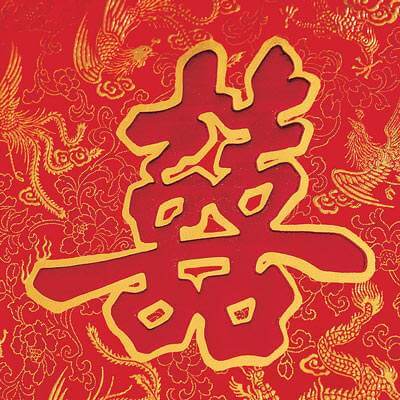The secret of marketing is the attention to detail. Paying attention to the meaning of Chinese numbers is one of them. In fact, every culture has symbols of good or bad omen. They can affect everyday life as well as purchase choices. This is because culture in China still deeply influences daily life. Therefore, choosing a cross-cultural marketing approach that pays attention to these kinds of details is undoubtedly the most suitable strategy.
It may seem odd to think this, but numbers in China can weigh heavily. An example? In 2003, the phone number +86 28 8888 8888 was sold to Sichuan Airlines for the sum of 2.33 million yuan. More than 250,000€! The reason is simple. 8 is the luckiest number in China. In contrast, 4 is the most feared, so much so that hotels do not have a fourth floor! The same is often true for elevators. Of course these may seem like simple trivia, but nevertheless a few hints about Chinese numbers can certainly come in handy. Let’s start right away.
>> READ ALSO: COLORS IN CHINA: A GUIDE TO THEIR MEANING AND TIPS FOR MARKETING
Chinese numbers: the lucky charms
Numbers beloved by the Chinese include 0, 2, 3, 6, 8 and 9.
Number 0: Since zero is the beginning of all things, it is considered auspicious.
Number 2: There is a saying in China that goes “good things come in pairs.” Traditionally, in fact, doubles are thought to bring good. That’s why ornamental decorations are usually always made in pairs (two candles, two statuettes…). Or why Chinese brand names often repeat the same character. For example, the term 囍 (shuāng xĭ) is given by the repetition of 喜 (xĭ, joy, happiness) and it means “double joy.”
Number 3: 3 also brings good luck. Its pronunciation (sān), resembles the sound of 生 (shēng), meaning life, being born.
Number 6: While in the West 6 is not considered positive (666 is the number of the devil!), in China 6 is homophone of “fluid” 流 (liú). This suggests that things can flow smoothly. It is no coincidence that many companies show the number 6 on their displays. In fact, it is thought to be good for one’s business.
Number 8: The cult number, which in China is considered the luckiest of all, 8. Now we can explain why that phone number was sold so dearly. Or why the 2008 Beijing Olympics began on August 8, 2008 (8/8/08) at 8 and 8 minutes. Indeed, 8 has a pronunciation that resembles the sound of the character 发 (fā), meaning prosperity, success. Its spelling with Western characters, 88, also resembles the character 囍 (shuāng xĭ), double joy.

Number 9: Finally, we have number 9. It brings good luck since it is traditionally associated with emperors. Also, it a homophone of 久 (jiǔ), meaning “long lasting.” It is the preferred number for marriages.
Chinese numbers: the ones to avoid
Number 4: The most unfortunate and feared number of all. 4 has the misfortune of having a pronunciation similar to that of the character for “death,” 死 (sǐ). Not surprisingly, its presence is forbidden in many places or contexts. Not only does the fourth floor often not appear in elevators, but attempts are also made to avoid it in phone numbers, documents, and product names. Somewhat like what happens to number 13 in many Western cultures.
Chinese numbers: the ambivalent ones
Numbers that, on the other hand, are not viewed in a completely (or totally) positive way are 1, 5 and 7.
Number 1: Depending on the case, number 1 can be a good or bad omen. It is the number of winners, but also the number associated with loneliness. Single’s Day is in fact on November 11th, 11/11. On the other hand, this day has been turned into an occasion for wild online shopping, so it has also acquired a positive connotation.
Number 5: Another number that like 1 is ambivalent is 5. It is the number that characterizes the 5 elements (fire, earth, water, metal and wood). However, it also has a sound similar to 无 (wú), meaning “without,” “lack,” in short, a character indicating deprivation.
Number 7: 7 is associated with auspiciousness in the sentimental sphere due to its homophony with the character 齐 (qí), which also means “together.” Lovers’ Day is in fact the 7th day of the 7th month of the Chinese lunar calendar. Its sound is also very similar to the characters 起 (qĭ) and 气 (qì), meaning “beginning,” “growth,” and “vital energy.” On the other hand, the seventh month is also traditionally remembered as the month of ghosts and spirits, not exactly something pleasant.
Tips for your digital marketing strategy
To achieve greater business success in the Chinese market, our advice is to try and use number 8 as much as possible. It can be included, for example, in codes that identify a product, an account, a shipping order, or a phone number. It may sound absurd, but many Chinese people really pay great attention to this details. As mentioned, phone numbers are more expensive the more 8 they contain. Receiving a business card with a phone number full of 8s automatically indicates the status of the person who is handing it to us. Similarly, then, using this figure or other numbers considered positive within all the elements that make up a company’s “virtual business card” can help improve its brand identity.
Top image source: Teleskola




